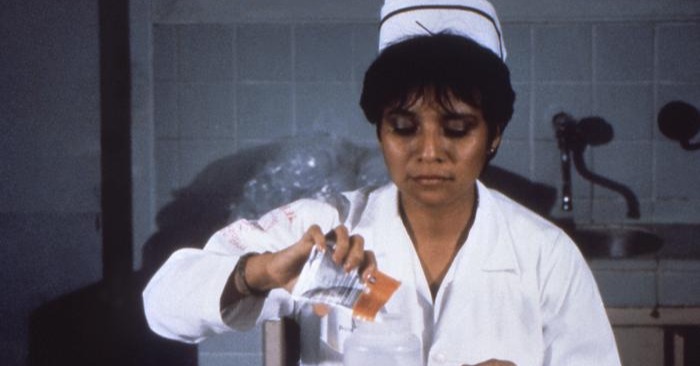
How to Become a Health Services Manager,and How Much $$$ You'll Earn Doing It.
On average, health services managers earn over $100,00 per year. [...]
If you know a nurse, chances are they’re a staff nurse: The majority of the nation’s 2.7 million registered nurses (RNs) work as staff nurses in hospitals across the country.
On the front lines, staff nurses make sure patients aren’t overlooked or suffering in pain. They attend to patients in rehab, critical care, psychiatric care, and outpatient facilities—anywhere in a hospital where a patient needs care or information.
Staff nurses handle much of the routine care of hospital patients. Some common tasks of staff nurses include:
In this article, we’ll cover:
The term “staff nurse” is a generic term describing any nonsupervisory nurse on the staff of a hospital clinic or ward. Depending on where they work, they may also be called a:
No two staff nursing jobs are exactly alike. Nurses for a Healthier Tomorrow explains that staff nurses can work in a range of hospital settings, including:
Note: the term “staff nurse” is most often applied only to subordinate nurses who work in hospitals, but in some cases—and in some job listings—it is also used to describe nurses who serve on the staff of long-term care facilities, clinics, ambulatory care units, and public health agencies. In this article, the term refers to hospital nurses.
The minimum education requirement for becoming a staff nurse is a two-year associate’s degree in nursing. This degree qualifies you to take the NCLEX-RN exam and earn your registered nursing certification.
Completing additional education for a nursing degree, such as a four-year bachelor’s degree in nursing and a two-year master’s degree in nursing (MSN), is not required. However, these degrees will certainly help you advance your career, should you aspire to supervisory, management, administrative, or advanced practice roles. If you have no desire to advance beyond the staff nurse position, an associate’s or bachelor’s degree is probably all you will need.
MSN degree programs can help you move onto nurse specialist positions, such as nurse practitioner or nurse anesthetist. If you currently hold an associate’s degree, you’ll need to complete your bachelor’s before you can earn your master’s. The entire process will take at least five years, but when you’re done, you should see a significant books in pay. According to Glassdoor.com, nurse practitioners earn an average of $128,000 annually.
Nursing programs are widely available online at the associate’s, bachelor’s, and master’s levels. Be careful: especially at the associate’s level, some online programs will charge significantly more for the same degree you could earn at your local community college. If you already have your associate’s degree, look into RN to BSN programs, which can save you time and money.
The following schools offer an online MSN or similar degree:
You don’t have to wait until graduating from high school to start pursuing your career in nursing. If you’re interested, some hospitals will allow you to shadow a staff nurse to learn more about a career in nursing and gain experience in a healthcare setting.
All states require RNs to earn a license, although requirements vary from state to state. To be eligible in all states, you must:
A nurse’s education doesn’t stop when they earn an associate’s, bachelor’s, master’s, or doctoral degree. Many states require RNs to meet continuing education requirements as a precondition of renewing their licenses.
You can improve your skills and your résumé by earning certifications in nursing specializations. Certifications can help you meet your continuing education requirements, another plus.
Depending on your level of experience, nursing degree, staff nurse certifications, and leadership skills, you may gravitate toward senior roles such as a nurse manager, nurse educator, nurse researcher, nurse practitioner, or clinical nurse specialist. Nursing leadership skills are critical to those who want to get ahead and manage a nursing staff.
Within the larger field of nursing, the U.S. is facing a nursing shortage. The Bureau of Labor Statistics reports a job growth rate for nursing of 12 percent between now and 2028.
Most of the top-paying cities for staff nurses is within California and those metro areas include:
Some of the top-paying cities for staff nurses outside of California include:
According to PayScale, the following types of experience can help boost your pay:
What’s life really like as a staff nurse? Get some behind-the-scenes insights from these resources:
Plus, as you plan for your education and beyond, check out these additional program and career resources from Noodle:
Staff nursing is the entry point for registered nurses working in hospitals. Some use the role as a stepping stone to advanced degrees and management roles. Others, however, enjoy the personal interaction with patients and the hands-on experience of working the hospital floor, and they build careers as staff nurses. Whichever path suits your preferences, working as a staff nurse is an excellent introduction to the world of hospital nursing.
(Updated on January 24, 2024)
Questions or feedback? Email editor@noodle.com

On average, health services managers earn over $100,00 per year. [...]

All health data analysts sift and sort data to cull [...]

A Doctor of Nursing Practice (DNP) degree qualifies you for [...]

A travel nurse can easily earn a higher salary than [...]

Neonatal nurse practitioners deliver essential healthcare to newborns with high-risk [...]
Categorized as: Advanced Practice Nursing, Nursing Administration & Leadership, Nursing & Healthcare